 |
| Meeting to deploy cooperation in training Robotic Team for primary and secondary school students of Thien Hung commune, Dong Nai province with Binh Duong University. Photo: Binh An |
When "model lesson plans" are no longer enough for the new era
In the past, for many years, university and college teaching was standardized by “model lesson plans”: from objectives, methods, content to assessment… all were specified in detail. This method helped control training quality in conditions of limited technology. But now, when AI has developed rapidly, the model of “one lesson plan - ten thousand lectures” has become obsolete.
The changing times require lecturers to step out of the one-way transmission framework to become organizers, designers and guides of digital learning journeys for students. There, learners not only receive knowledge but also actively explore , debate, create and create their own learning products through technology. It is the shift from “transmission” to “creating experiences” that is the clearest expression of pedagogical capacity in the AI era - where the lesson plan is no longer a rigid plan but an open space for thinking, emotions and creativity to develop together. From being “knowledge providers”, lecturers have now become “digital learning architects”, coordinators of knowledge between humans and learning machines, between real emotions and virtual data.
Resolution 71 - a boost for digital education thinking
Resolution No. 71-NQ/TW on breakthroughs in education and training development in the new period emphasized: "Comprehensive digital transformation, popularization and strong application of digital technology and artificial intelligence in education and training". Then, on September 15, 2025, the Government issued Resolution No. 281/NQ-CP on the Action Program to implement Resolution 71, institutionalizing the implementation roadmap to each level of education, focusing on developing the digital capacity of the teaching staff.
According to the Ministry of Education and Training, the 2025-2026 school year is identified as the "year of comprehensive digital transformation", closely linked to three pillars: Open education, lifelong learning; Application of AI in education management and quality assessment; Development of digital capacity for lecturers and learners.
“AI is not just a tool but a breakthrough solution, opening up a new way of thinking about education,” said Deputy Minister of Education and Training Nguyen Van Phuc. According to him, when AI is involved in every step – from lesson design, competency assessment to research support, the role of teachers must be raised to a new level: a guide in the digital world.
Digital competence - the new foundation of the teaching profession
According to experts, the digital capacity of lecturers is not simply knowing how to use software or AI tools. It is a set of integrated capacities, including: Technological capacity: mastering digital tools, online teaching platforms, simulation software, AI to support learning; Digital pedagogical capacity: designing multimedia learning experiences, personalizing learning paths for each student; Data capacity: knowing how to analyze and exploit learning data to respond and adjust teaching methods; Digital ethical capacity: protecting privacy, avoiding AI abuse and ensuring humanity in education. In other words, "digital capacity" is a blend of knowledge - skills - attitudes, a new professional standard that all lecturers must aim for.
No one can continue to teach the generation of students who grew up with ChatGPT, Copilot or smart learning platforms with lesson plans from the chalk and blackboard era.
Master Nguyen Thanh Son, Director of the Institute of Artificial Intelligence and Digital Transformation, Binh Duong University, shared: "When AI can grade papers, create questions, and even prepare lectures, the role of lecturers is no longer to replace the machine but to work with the machine - to guide students to use AI responsibly, creatively, and humanely."
Lessons from pioneering models
Without waiting for Resolution 71 to be issued, many domestic universities have begun testing AI models in teaching. At Ho Chi Minh City National University, the pilot implementation of the “AI Mentor” system allows students to ask and answer questions, review and receive automatic feedback on lesson content. Lecturers can monitor each student’s progress via the dashboard, thereby promptly intervening with weak learners or those who have not participated in enough learning activities. At Hanoi University of Science and Technology, the “AI thesis grading” software helps lecturers save 40% of the time spent reading and preliminary criticism, while students receive more objective, quick and detailed feedback.
Meanwhile, Binh Duong University - one of the first schools in the Southeast region to implement the "Digital Lecturer - Smart Student" program - has incorporated AI in guiding students to do projects, design products and give presentations using AI tools. Lecturers play the role of advisors, helping learners understand that: AI is only smart when users know how to ask smart questions.
Opportunities come with challenges
The opportunities are huge, but there are also significant challenges. According to a survey by the Ministry of Education and Training (2025), only about 35% of university lecturers are currently trained in digital skills; most are still confused when applying AI to design learning materials or evaluate learning outcomes. Many lecturers are concerned that AI “writing lessons for them” or “solving questions for them” will make students lazy in thinking; or they are afraid that technology will replace their role in the future.
Therefore, to avoid the “digital gap” in the teaching staff, many schools have proactively built digital capacity training programs: from AI application skills in teaching, video lecture content creation techniques to virtual classroom management skills, and student data security. Along with that is the requirement to innovate professional standards for lecturers, in which digital capacity must become a mandatory criterion when considering titles, promotions, or evaluating teaching effectiveness.
Innovating training thinking so that lecturers do not "fall behind"
The reality is that if the teacher training program still maintains the "traditional" approach, even with hundreds of resolutions, digital transformation will still only be on paper. Therefore, pedagogical institutions need to take the lead in restructuring the training program: Integrating AI modules in education, digital learning design, technology ethics; Strengthening practical modules with tools such as ChatGPT, Copilot, Khanmigo, ClassPoint AI... so that pedagogical students can experience the role of "digital lecturers" right from their studies; Encouraging cooperation with technology enterprises to develop an "open learning ecosystem". Along with that, there needs to be a strong investment policy in technology infrastructure, the national education data system and especially a policy to encourage innovation in teaching so that teachers dare to try, dare to make mistakes, dare to change.
When the teacher returns to its true meaning - the guide of knowledge
AI is creating a “silent revolution” in education. But the core of education – as always – is still human. AI can help teachers teach faster and more effectively, but only teachers can teach people how to live humanely, how to love knowledge and how to become themselves. In the digital age, the role of teachers does not disappear but returns more meaningfully than ever: the guide in the data maze, the one who inspires learning, the one who keeps the human rhythm in the cold world of machines.
Resolution 71-NQ/TW and Resolution 281/NQ-CP have opened a new vision for Vietnamese education in the AI era. But for that vision to become a reality, the most important thing is not technology but people, especially the teaching staff. Teachers in the AI era need more than ever digital capacity, innovative thinking and a humane heart. Because they, not any algorithm, are the ones who create a generation of digital citizens with intelligence, courage and responsibility - the people who will join the country in a new era of knowledge and creativity.
Tu Huu Cong
Source: https://baodongnai.com.vn/xa-hoi/giao-duc/202511/giang-vien-thoi-dai-ai-can-nang-luc-so-hon-la-giao-an-mau-07f0505/
















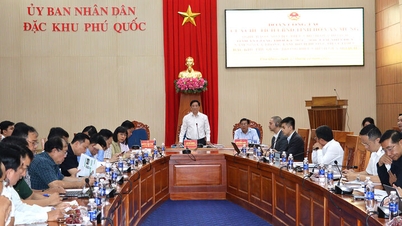

























![[Photo] General Secretary To Lam and National Assembly Chairman Tran Thanh Man attend the 80th Anniversary of the Traditional Day of the Vietnamese Inspection Sector](https://vphoto.vietnam.vn/thumb/1200x675/vietnam/resource/IMAGE/2025/11/17/1763356362984_a2-bnd-7940-3561-jpg.webp)




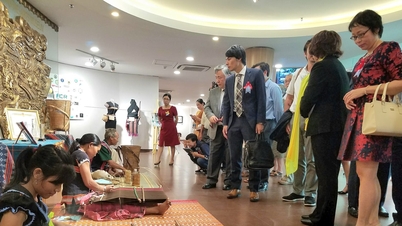







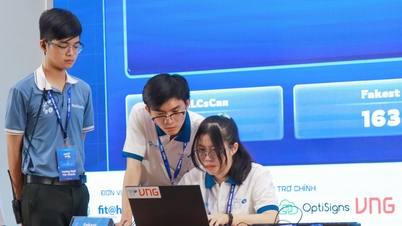
























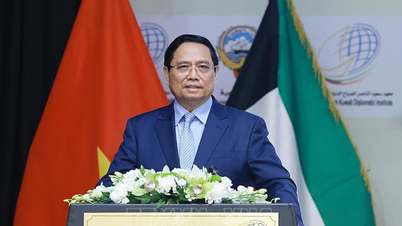














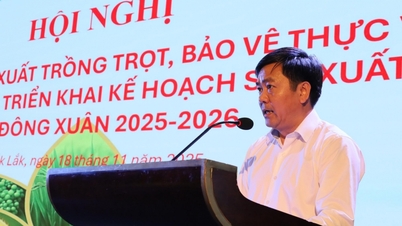










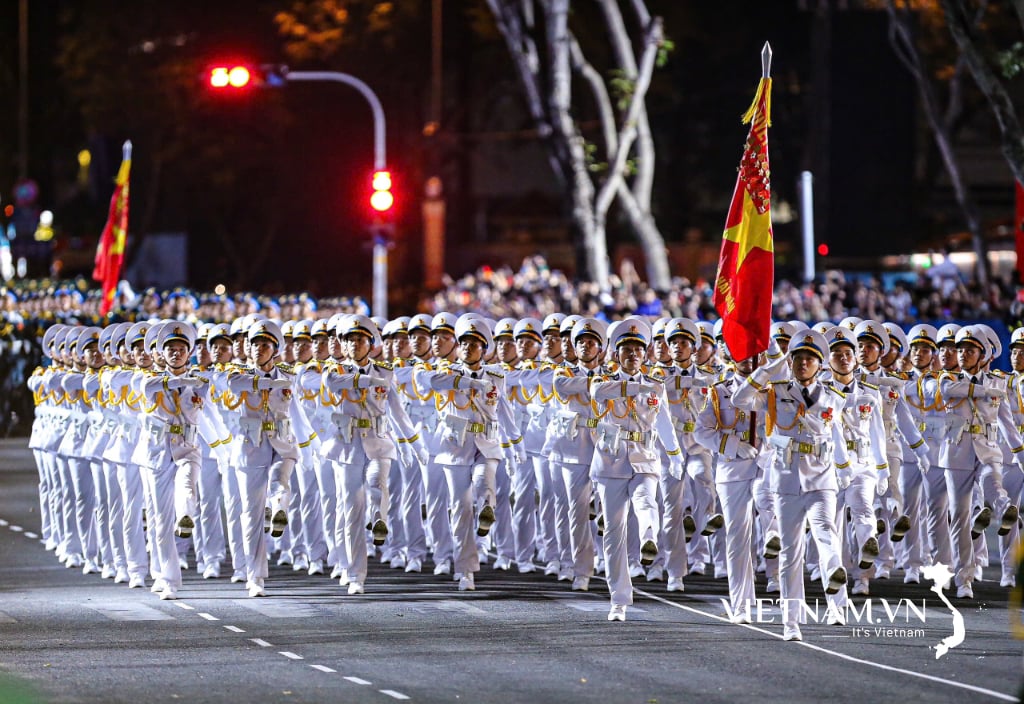


Comment (0)